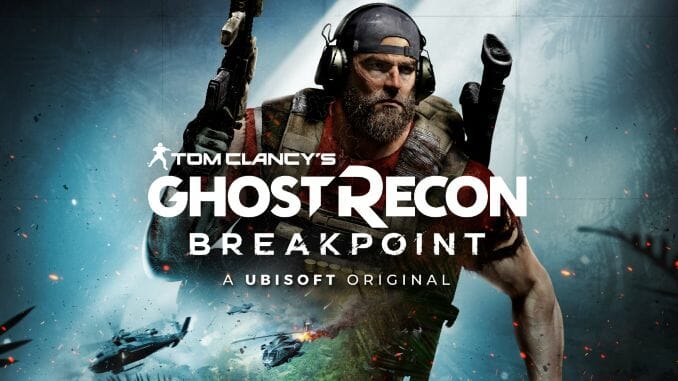Ubisoft Breaks the Seal on Gaming NFTs with Ghost Recon Breakpoint

Well, it happened. NFTs have been brought into the videogame space by a major game company, beating EA’s inevitable attempts with their next round of soccer games. The first—and probably not the last—swing Ubisoft will be making at NFTs (non-fungible tokens) playable in an HD game and allegedly “relying on an energy-efficient technology” are called “Digits” and will be available through Ubisoft Quartz. Digits are unique collectibles that can be played in-game, starting with limited edition gear for Tom Clancy’s Ghost Recon Breakpoint player character avatars with unique serial numbers.
Starting tomorrow, Dec. 9 at 1 p.m. ET, a limited number of M4A1 Tactical rifles with a black-and-red color scheme called “Wolves” will be made available. Then the dark grey “Wolf Enhanced Helmet A” on Dec. 12 and “Wolf Enhanced Pants” on Dec. 15. I don’t know how any of this contributes to being better at the game or having a more fun experience (Ubisoft says on the website “Digits are purely cosmetic items that do not influence the gameplay, be it PvE or PvP”), but people buy skins in free-to-play games, so it’s not that mind blowing a concept.
NFTs in Ghost Recon are, as ever, a solution in search of a problem; supply in search of a demand. Like skyrocketing college football coach salaries and the building of luxury condos that people can’t afford, NFTs are a symptom of late capitalism, a consequence of vast income inequality and poor distribution of resources. College football boosters, venture capital firms buying up property, and videogame companies looking to further wring money out of their consumers all have capital without productive use, so they put it toward means of extracting further capital from people that have less.
NFTs have been described as a “pump-and-dump scheme” by Amy Castor at Business Insider. NFTs convey “proof of ownership” without any copyright or any physical object that has allegedly been bought. In that July article, University of Campinas computer science professor Jorge Stolfi argues that “a purely digital artifact—a pattern of bits, like a JPEG image or an MP3 song file—cannot be a collectible, because it can be duplicated trillions of times, and every copy is exactly the same as the original. Not just similar or even identical, but the same thing.”
The individual NFTs have their value artificially inflated by bidding wars between crypto insiders. Then either other super-rich people buy them because they have more money than they can productively use, or people in the vast and nondescript middle class pour their savings into something hoping that they can flip it.